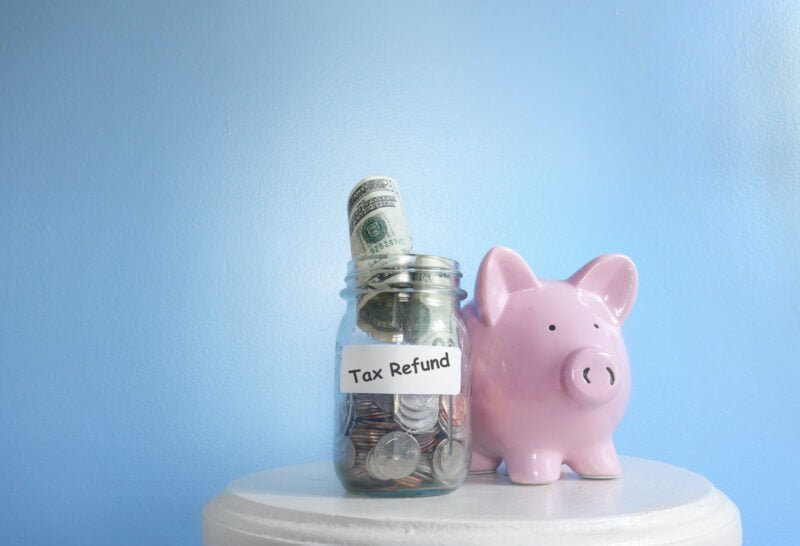The average for tax refunds in the year 2020 was over $2,500. If you want to be among the people who maximize their tax refunds, you have to know how to file your taxes effectively. This includes using the best tax refund tips.
In this article, we provide you with the tax refund tips you need to get the best possible refund. We also answer questions like, ‘how do I do my taxes,’ and, ‘when are my taxes due?’ Continue reading if you want the best refund possible.
What Is a Tax Refund?
Your first question is likely, ‘what is a tax refund?’ Tax refunds are a result of overpaying your taxes. While it’s nice to get a check back from the government, it often means you made an error on your taxes.
Since you overpaid your taxes, you essentially gave the government an interest-free loan. Even though nobody wants to have to pay taxes, it’s better to get an interest-free loan than to give one in most situations.
When Are My Taxes Due?
The deadline to file your tax return is April 15, but you can file your taxes earlier than that if you want to. The Internal Revenue Service (IRS) starts accepting tax returns as early as January 15th.
The date you can submit your return depends on when you accumulate all of the necessary documents. If you don’t think you’ll be able to meet the April 15th deadline, you have the option to file for an extension with the IRS.
You can apply for a file extension online with the IRS. The extension is free and gives you until October 15th to file.
How Much Do I Receive in My Tax Refund?
A common question asked is, ‘how much do I receive in my tax refund?’ The answer depends on factors such as your marital status, filing status, occupation, income, and more.
There are many different tax calculators available online to help estimate tax refunds. However, the only way to know what your actual refund will be is to file them.
How Do I Do My Taxes?
When it comes to the question, ‘how do I do my taxes,’ the answer depends on your personal preferences. You have the option to file your taxes yourself or work with a tax professional.
Since your financial situation can change from year to year, it’s worth considering during each tax season. The benefits of each depend on your financial situation.
Do-It-Yourself
A do-it-yourself approach is a great option for those with a simple tax return and the time to gather records. In these types of situations, you can save money on the cost of filing with a professional which averages $175.
Those with the simplest tax returns file some version of Form 1040. Those using this form tend not to have dependents and report only income from wages and salaries. Their taxable interest is no more than $1,500 with no itemized deductions.
Hire a Professional
While anyone can hire a professional to prepare their tax returns, those with more complex tax situations benefit the most from doing so. For example, small business owners, those owning multiple properties, or those with itemized deductions.
Professionals such as those at Taxfyle (https://www.taxfyle.com/freelance-cpa-jobs) have the knowledge and experience to take your stack of documents and organize them into your return.
This knowledge is essential in getting you the maximum tax refund possible. Trying to complete taxes yourself can result in errors, especially for those with complex taxes. This can result in fines from the IRS if you are audited.
Tax Refund Tips
In order to complete your taxes to the best of your ability, you need to utilize the best tax refund tips. They can help prevent you from making costly errors and give you the best tax refunds.
1. Confirm Your Status
When filing your taxes, be sure that you have the correct filing status. Filing jointly can offer you significantly better tax breaks, and a better refund, than if you were to file as a single person.
2. Claim Your Deductions
If you have a lot of deductions, be sure to claim them when filing. In some instances, itemized deductions can save you more than the standard deduction. Examples of deductions include medical expenses, charitable donations, and education expenses.
3. Claim Your Dependents
If you have children, you’ll be claiming them on your tax return. This gives you a much higher tax return. You may be able to claim other dependents as well depending on your situation.
You may be able to claim friends or family members if you’ve been supporting them financially. To qualify, you have to be contributing more than half of their total support for the tax year.
4. Triple Check Before Submitting
One of our most important tax refund tips is to double and triple-check your taxes before submitting them. This includes verifying that your math is correct and that you didn’t forget to include any sources of income.
There are financial penalties for making payments late or making errors on your tax return. In severe cases, you can face charges of fraud and tax evasion, which can result in hefty fines and jail time.
5. Use Your Refund Wisely
Once you’ve figured out your tax refunds, you’ll have to wait approximately three weeks until you receive a check or find it in your account. Using your tax refunds wisely can help improve your financial situation for the year ahead.
We recommend putting your tax return into a savings account or paying off any debts. If you don’t have debt, consider putting it toward your retirement or stocks. The best use of tax refunds is to improve your future financial situation.
Understand Your Tax Refunds
Now that you know, ‘how much do I receive in my tax refund,’ and, ‘how do I do my taxes,’ you can get a jump start on your upcoming tax return. The above guide is key in getting maximum tax refunds and preserving your financial future.
For more helpful guides and tips, visit our blog.




